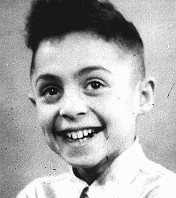You searched for: ban%20tin%20b%C3%B3ng%20%C4%91%C3%A1%E3%80%900242.com%E3%80%91b%C3%B2ng%20%C4%91%C3%A1%20tr%E1%BB%B1c%20tuy%E1%BA%BFn
<< Previous | Displaying results 251-300 of 448 for "ban%20tin%20b%C3%B3ng%20%C4%91%C3%A1%E3%80%900242.com%E3%80%91b%C3%B2ng%20%C4%91%C3%A1%20tr%E1%BB%B1c%20tuy%E1%BA%BFn" | Next >>
-
Last Diary Entry Written by Otto Wolf
Timeline EventApril 13, 1945. On this date, Otto Wolf, a teen diarist who chronicled his family's experience in hiding, wrote his last diary entry before his death.
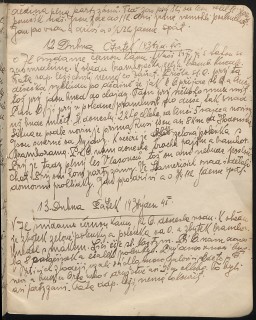
-
Page from Otto Wolf's Diary
Timeline EventApril 17, 1945. On this date, Felicitas Wolf wrote her first entry in her brother Otto's diary after his disappearance.
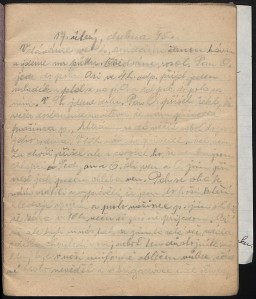
-
Eden Dance Palace Shooting
Timeline EventNovember 22, 1930. On this date, Nazis attack a leftwing group at a dance hall in Berlin.
-
The Netherlands
ArticleLearn more about the Netherlands during the Holocaust and the fate of Dutch Jews after the 1940 German invasion.
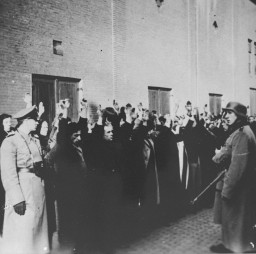
-
Artist on the Blacklist: Ludwig Meidner
ArticleLudwig Meidner was an Expressionist artist and poet. He was on the list of banned writers and artists in Nazi Germany. Monographs about him were burned in 1933.
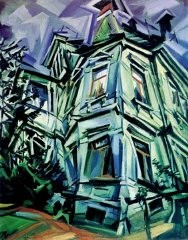
-
Bertolt Brecht
ArticleBertolt Brecht was a leading German dramatist, well known for his political films and plays. His works were burned during the Nazi book burnings of 1933. Learn more.
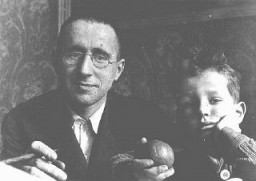
-
Kurt Pinthus
ArticleKurt Pinthus was a German Jewish journalist and critic connected to the Expressionistic movement. His works were burned in Nazi Germany in 1933. Learn more.
-
Jack London
ArticleJack London was an American author who wrote “The Call of the Wild.” His socialist leaning works were burned during the Nazi book burnings of 1933. Learn more.
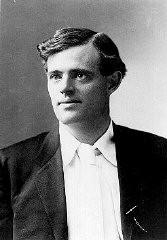
-
Max Brod
ArticleMax Brod was a Jewish author most widely known as the biographer and editor of Franz Kafka. His works were burned in the Nazi book burnings of 1933. Learn more.
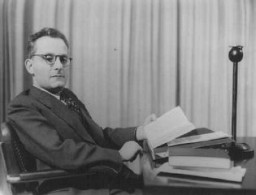
-
Magnus Hirschfeld
PhotoSigned portrait of German physician and sex researcher Magnus Hirschfeld (1868–1935). Hirschfeld sought to educate the public about sexuality. He advocated for the decriminalization of sexual relations between men, which was banned under Paragraph 175 of the German criminal code. Photo dated November 12, 1927.
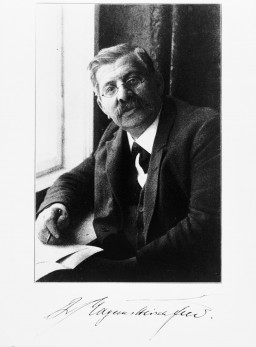
-
Portrait of writer Sigrid Undset
PhotoPortrait of writer Sigrid Undset, who won the Nobel Prize for Literature in 1928. Often with feminist themes, her novels were banned and burned in part because of her public criticism of the Nazi regime. Photo taken by Anders Beer Wilse on July 1, 1923.
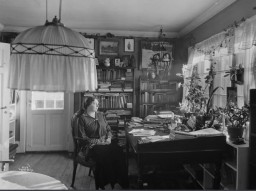
-
“Give Me Your Children”: Voices from the Lodz Ghetto
ArticleThe Jewish children of Lodz suffered harsh conditions after the German invasion of Poland. Read excerpts from diaries where they recorded their experiences.
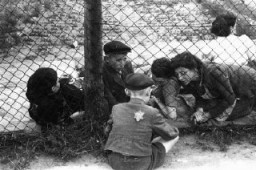
-
Timeline of the German Military and the Nazi Regime
ArticleKey dates illustrating the relationship between Germany’s professional military elite and the Nazi state, and the German military’s role in the Holocaust.
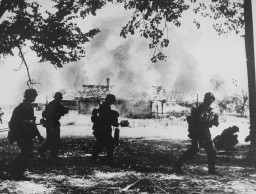
-
Life After the Holocaust: Norman Salsitz
ArticleAfter WWII and the fall of the Nazi regime, Holocaust survivors faced the daunting task of rebuilding their lives. Listen to Norman Salsitz's story.
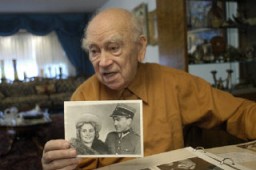
-
Arrested for homosexuality
PhotoA waiter from Düsseldorf who was arrested by the Gestapo for allegedly having sexual relations with other men. Düesseldorf, Germany, 1938. [RW 58-61940] The Nazi regime considered homosexuality a moral vice that threatened the current and future strength of the German people. They carried out a campaign against male homosexuality that included shutting down gay and lesbian meeting places and arresting men under Paragraph 175, the statute of the German criminal code that banned sexual relations between…
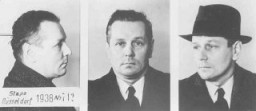
-
Antisemitism in History: The Early Modern Era, 1300–1800
ArticleJews in early modern Europe were subject to various laws, restrictions, and protections. Learn how these policies reinforced antisemitic stereotypes.
-
Erich Maria Remarque
ArticleErich Maria Remarque wrote the classic novel “All Quiet on the Western Front,” which became a Hollywood film. His works were burned under the Nazi regime in 1933.
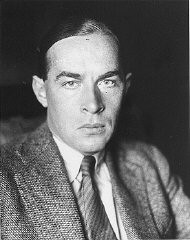
-
Belgium
ArticleThe Germans conquered Belgium in May 1940. Learn about the occupation, anti-Jewish laws and ordinances, detention camps, and deportations of Jews from Belgium.
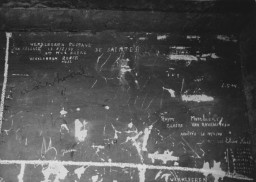
-
Concentration Camps, 1939–42
ArticleAs Germany conquered much of Europe, the concentration camp system expanded in size, function, and number of prisoners. Learn about concentration camps from 1939–1942.
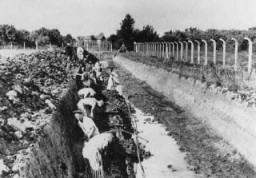
-
Emil Ludwig
ArticleEmil Ludwig was a liberal journalist and popular biographer whose works were burned under the Nazi regime in 1933. Learn more.
-
Nazi Political Violence in 1933
ArticleAfter Adolf Hitler became German chancellor on January 30, 1933, the SA and the SS unleashed waves of violence against political opponents and Jews. Learn more.
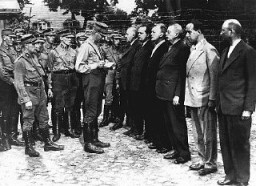
-
Erich Maria Remarque: In Depth
ArticleIn 1933, Nazi students at more than 30 German universities pillaged libraries in search of boo...

-
Hitler Youth
ArticleThe Hitler Youth and the League of German Girls were developed as Nazi Party youth groups to indoctrinate children and youth in Nazi ideology and policy.
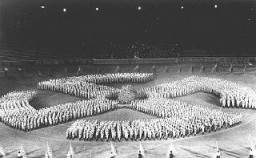
-
Assessing Guilt
ArticleAfter WWII, prosecutors faced the challenge of assessing the guilt of propagandists whose words, images, and writings had supported Nazi brutality and mass murder.
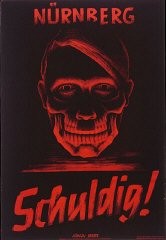
-
Holocaust Denial: Key Dates
ArticleBrowse a timeline listing some key events in the evolution of Holocaust denial and the distortion of the facts of the Holocaust.
-
Wilek (William) Loew describes forced labor in Lvov
Oral HistoryWilek was the son of Jewish parents living in the southeastern Polish town of Lvov. His family owned and operated a winery that had been in family hands since 1870. Wilek's father died of a heart attack in 1929. Wilek entered secondary school in 1939. Soon after he began school, World War II began with the German invasion of Poland. Lvov was in the part of eastern Poland annexed by the Soviet Union. Although the Soviets took over Wilek's home and the family business, Wilek was able to continue his…
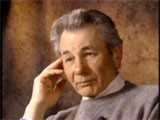
-
Hodonín U Kunštátu (Hodonín bei Kunstadt) (Roma camp)
ArticleIn March 1942, the Hodonin camp was classified as a camp for Roma. It was a transfer station during deportation to Auschwitz-Birkenau. Learn about the camp and its history.
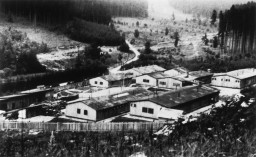
-
Trawniki
ArticleFrom July 1941-May 1944, the SS camp at Trawniki had several purposes. It is best known as the training site for auxiliary police guards used in Nazi killing centers. Learn more.
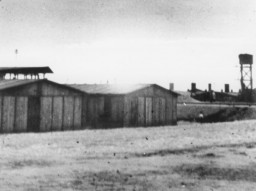
-
Deceiving the Public
ArticleThe Nazis frequently used propaganda to disguise their political aims and deceive the German and international public. Learn more.
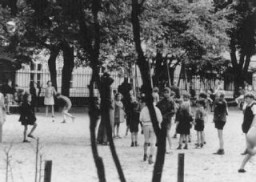
-
France
ArticleLearn about France during the Holocaust and WWII, the liberation of France, postwar trials, and the legacy of Vichy France’s collaboration with Nazi Germany.
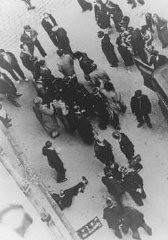
-
International Military Tribunal at Nuremberg
ArticleThe International Military Tribunal (IMT) opened in Nuremberg within months of Germany’s surrender. Learn about the judges, defendants, charges, and legacies.
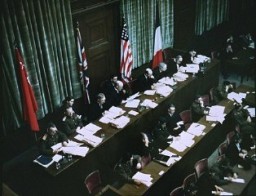
-
Jehovah's Witnesses in Germany: From the 1890s to the 1930s
ArticleThe Nazi regime targeted Jehovah’s Witnesses for persecution. Learn about the history of Jehovah’s Witnesses in Germany before and after the Nazi rise to power.
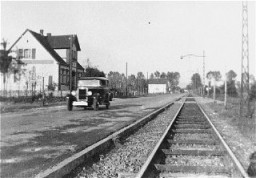
-
Anti-Jewish Legislation in Prewar Germany
ArticleNazi anti-Jewish laws began stripping Jews of rights and property from the start of Hitler’s dictatorship. Learn about antisemitic laws in prewar Germany.
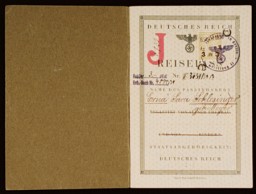
-
University Student Groups in Nazi Germany
ArticleNazi student groups played a key role in aligning German universities with Nazi ideology and in solidifying Nazi power.

-
Communism
ArticleCommunist ideas spread rapidly in Europe during the 19th and 20th centuries, offering an alternative to both capitalism and far-right fascism and setting the stage for a political conflict with global repercussions.
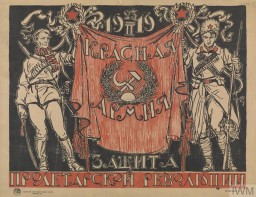
-
Holocaust Deniers and Public Misinformation
ArticleLearn more about Holocaust deniers, public misinformation, and antisemitism.
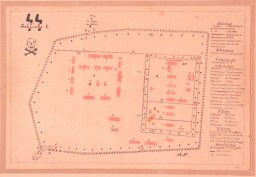
-
The Reichstag Fire
ArticleThe Nazis and their coalition partners used the burning of the Reichstag on February 27, 1933, as the pretext for emergency legislation that ultimately paved the way for Nazi dictatorship.
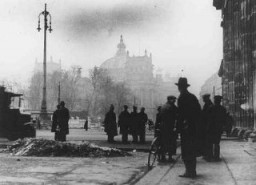
-
Culture in the Third Reich: Overview
ArticleNazi leaders aimed to change the cultural landscape through the "synchronization of culture," by which the arts were brought in line with Nazi ideology and goals.
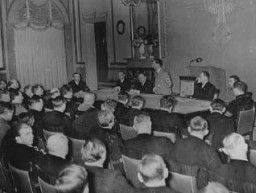
-
Marisa Diena
ArticleRead the Jewish Partisan Educational Foundation's short biography of Marisa Diena.
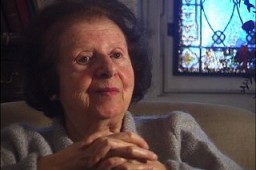
-
Frank Liebermann has a conversation with his teddy bear
PhotoHolocaust survivor Frank Liebermann has a conversation with his teddy bear. Germany, 1933–35. On Frank Liebermann’s first day of school in Gleiwitz, Germany, in 1935, he reported to one of the few small classrooms set aside for Jews. After school, he rushed home to avoid antisemitic attacks. In 1936, it got worse. Anti-Jewish laws now banned Frank from playgrounds and swimming pools. The family decided it was time to leave and applied for US visas. They were lucky. In October 1938, the…
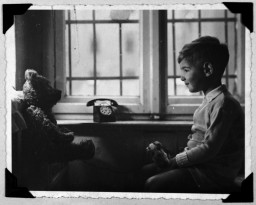
-
Gay Men and Lesbians under the Nazi Regime
SeriesThe Nazi regime harrassed and targeted gay men and lesbians. For gay men, this harassment turned into brutal persecution. Browse these articles to learn more.
-
Eugeniusz Rozenblum
ID CardEugeniusz's parents married in 1922 in the Soviet Union, where his father owned a textile mill. Fearing arrest by the Soviets for being "bourgeois," Eugeniusz's parents fled to Poland, where Eugeniusz was born. 1933-39: Eugeniusz was a secondary school student and was preparing to enter university, either in Poland or at the Hebrew University in Palestine. The German occupation of Lodz in September 1939 interrupted his schooling. One month after the occupation, a German soldier came to his family's door…
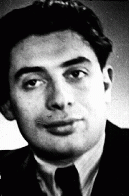
-
Ludmilla Schatz
ID CardLudmilla was one of four children born to Jewish parents in a small industrial city in southwestern Ukraine when the area was part of Tsarist Russia. Ludmilla grew up in Odessa, but she and her mother left in 1919 when Ludmilla's father was killed during the Russian civil war. Ludmilla and her mother emigrated to France and settled near Paris. Ludmilla married, and gave birth to a daughter in 1930. 1933-39: With her knowledge of Russian, French and German, Ludmilla felt comfortable in cosmopolitan Paris.…
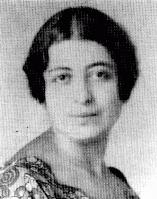
-
Magda Rein
ID CardMagda was the oldest of two children born to observant Jewish parents. They lived in Satoraljaujhely, a town in northeastern Hungary on the Czechoslovakian border. Jews represented some 20 percent of the town's approximately 18,000 persons. Magda's father owned a bakery; her mother was a midwife. 1933-39: At 10 years of age, Magda began accompanying her mother when she attended to births nearby. Her mother helped all women--Jews, Roma (Gypsies) and peasants in the surrounding villages. When Magda was 12,…
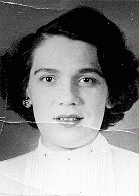
-
Pawel Zenon Wos
ID CardPawel was the oldest of four children born to Roman Catholic parents in Poland's capital of Warsaw. Pawel's father had worked for the Polish merchant marine before starting his own textile business in 1930. The family moved to a comfortable apartment near the Royal Castle and the Vistula River. Pawel excelled in sports, including basketball and tennis. His favorite sport was rowing. 1933-39: In May 1939 Pawel became an army reserve officer and went to training camp near Augustow. On the morning of…
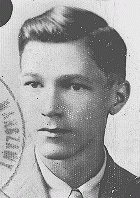
-
Itka Wlos
ID CardItka was raised in a Yiddish-speaking, religious Jewish family in Sokolow Podlaski, a manufacturing town in central Poland with a large Jewish population of about 5,000. Itka came from a poor family. After completing her public schooling in Sokolow Podlaski at the age of 14, she began to work. 1933-39: Itka was a young woman, unmarried and living with her parents when war between Germany and Poland broke out on September 1, 1939. German aircraft bombed Sokolow Podlaski's market and other civilian targets…
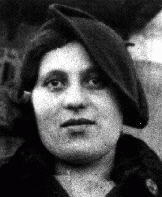
-
Chaim Werzbe
ID CardChaim was raised in a Yiddish-speaking, religious Jewish family in Sokolow Podlaski, a manufacturing town in central Poland with a large Jewish community of about 5,000. The economic activities of most of the townspeople were closely tied to those of nearby Warsaw and surrounding farming communities. As a young man, Chaim liked to play chess and was active in a local Zionist organization. 1933-39: Chaim made a living in the grain business. After settling down, he married a widow who was older than he and…
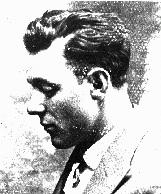
-
Fela Perznianko
ID CardFela was the older of two children born to Jewish parents living in Zakroczym, a town on the Vistula River near Warsaw. Her father was a respected attorney. As a young woman, Fela worked as a hat designer in Warsaw, until she married Moshe Galek when she was in her late 20s. She moved to the nearby town of Sochocin, where her husband owned a pearl-button factory. Fela and Moshe raised four daughters. 1933-39: In 1936 the Galeks moved to Warsaw, attracted by the city's cultural life. When Germany invaded…
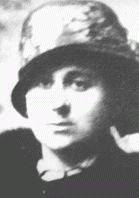
-
Herschel Rosenblat
ID CardHerschel was the youngest of three sons born to Yiddish-speaking Jewish parents. When Herschel was a child, his family moved to Radom, an industrial city which had a large Jewish population. By 1930, Herschel had finished his schooling and was helping in his father's shoemaking business. With the help of a friend, he later found a full-time job as a house painter. 1933-39: Herschel's career as a painter was interrupted for two years when he was drafted into the Polish cavalry at the age of 20. When…
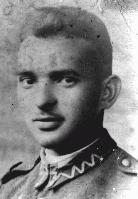
-
Joseph Muscha Mueller
ID CardJoseph was born in Bitterfeld, Germany, to Roma ("Gypsy") parents. For reasons unknown, he was raised in an orphanage for the first one-and-a-half years of his life. At the time of Joseph's birth, some 26,000 "Gypsies"—members of either the Sinti or Roma tribes—lived in Germany. Though most were German citizens, they were often discriminated against by other Germans and subjected to harassment. 1933-39: At age one-and-a-half, Joseph was taken into foster care by a family living in Halle, a city some…
